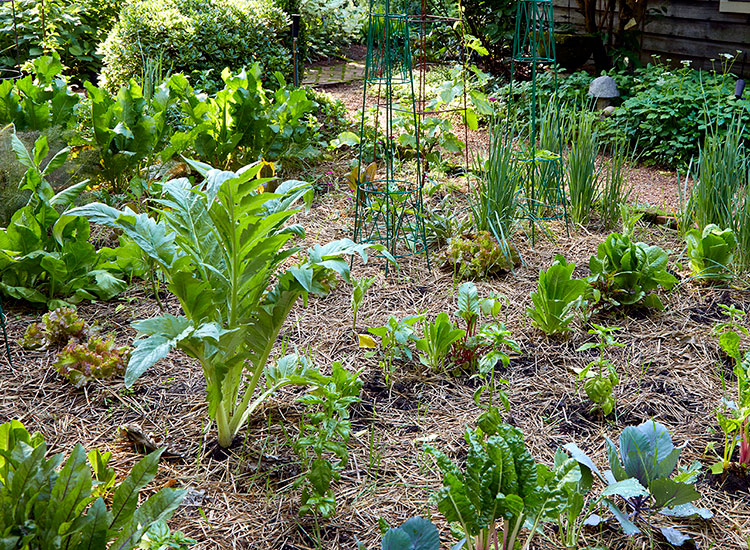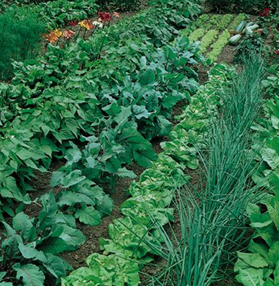Discover the Secret to Growing Pepper Plants: Best Fertilizers For Peppers Revealed
Wiki Article
Beneficial Your Peppers to Perfection: Deciphering the Tricks Behind the Finest Plant Foods for Optimum Plant Wellness
In this write-up, we'll reveal the keys behind the finest plant foods to accomplish optimal crop health and wellness. From comprehending the significance of dirt nutrients to mastering the application strategies, we'll lead you every action of the method. Whether you favor synthetic or natural fertilizers, we've got you covered.Importance of Dirt Nutrients

Among one of the most important soil nutrients is nitrogen. Nitrogen is accountable for promoting leaf and stem development. It is essential for the production of chlorophyll, which is required for photosynthesis. Without sufficient nitrogen, plants will certainly have yellowing leaves and lowered overall vigor.
Phosphorus is an additional essential nutrient for plant development. It plays a vital duty in power transfer and is needed for the advancement of strong roots and blossoms. Phosphorus shortage can cause inadequate origin development and decreased blooming, inevitably impacting crop return.
Potassium is critical for managing water uptake and enhancing plant resistance to parasites and conditions. It additionally adds to the general top quality and preference of the crops. A lack of potassium can cause weak stems, bad fruit development, and raised susceptibility to conditions.
In enhancement to these primary nutrients, plants additionally need second nutrients like sulfur, magnesium, and calcium, along with micronutrients like iron, manganese, and zinc. Each nutrient has a specific feature in plant growth and development, and a shortage in any of them can have detrimental results on crop health.
Understanding NPK Ratios

The NPK ratio is a depiction of the percentage of these three nutrients in a fertilizer. A plant food with an NPK proportion of 10-10-10 has equivalent amounts of phosphorus, potassium, and nitrogen. Comprehending these ratios is important because various plants have different nutrient needs. best fertilizers for peppers. For peppers, a well balanced NPK ratio like 10-10-10 or 14-14-14 is usually suggested.
However, it is necessary to note that the exact NPK ratio needed might vary depending on variables such as soil kind, climate, and particular plant demands. Carrying out a dirt examination can help figure out the nutrient shortages or extras in your dirt and guide you in choosing the ideal plant food with the appropriate NPK ratio.
Organic Vs. Synthetic Plant Foods
You regularly come across the dispute between natural and artificial plant foods when it comes to beneficial your peppers for optimal plant wellness. Organic fertilizers also boost soil structure and fertility, advertising useful microbial activity.On the other hand, artificial plant foods are manufactured chemically and provide nutrients in a conveniently available form. Synthetic plant foods can additionally lead to vitamins and mineral imbalances and dirt destruction if used excessively or incorrectly.
Organic plant foods provide long-lasting soil health advantages and are much more lasting in the long run, but they may not give prompt outcomes. Artificial fertilizers, on the other hand, can deliver quick nutrients but may have adverse ecological effects.
Best Fertilizer Application Techniques
Proceeding the discussion on artificial and natural fertilizers, allow's check out the most reliable techniques for using fertilizers to your peppers. Appropriate plant food application is vital for maximizing crop health and wellness and yield.For granular fertilizers, transmitted them uniformly over the dirt surface area. After spreading, lightly rake the plant food right into the leading layer of soil to avoid overflow and boost absorption.
Fluid fertilizers can be applied through foliar spraying or with the watering system. Foliar splashing entails splashing the fertilizer directly onto the fallen leaves. This technique permits fast nutrient absorption and is suitable for correcting nutrient shortages. When making use of the watering system, water down the fluid fertilizer according to the manufacturer's instructions and apply it evenly to the soil.
Keep in mind to adhere to the recommended application prices to prevent over-fertilization, which can harm your peppers. Regular monitoring and adjusting of plant food application is needed throughout the expanding season. By applying fertilizers correctly, you can offer your peppers with the crucial nutrients they require for healthy and balanced development and plentiful harvest.
Supplementing With Trace Elements
To ensure optimum plant health and return, it is essential to supplement your peppers with essential trace elements. Micronutrients are vital for the total development and growth of your plants, as they play a critical function in various physical procedures. These nutrients are called for in tiny amounts, however their lack can seriously impact the wellness and performance of your pepper plants.One of one of the most crucial micronutrients for peppers is iron. Iron is vital for chlorophyll synthesis, which is responsible for the green color in plants. Without sufficient iron, your pepper plants may develop yellow leaves, stunted growth, and reduced fruit manufacturing. You can Check This Out supply your peppers with iron through foliar sprays or soil applications of iron chelates, which are readily offered in yard centers.
One more trace element that plays an essential role in pepper growth is zinc. You can supply your peppers with zinc through the use of zinc sulfate or zinc chelates, either as a foliar spray or soil application.
In addition to iron and zinc, other crucial trace elements for peppers include manganese, copper, boron, and molybdenum. These trace elements are associated with different metabolic procedures and are required for ideal pepper development and efficiency. best fertilizers for peppers. It is necessary to on a regular basis check the nutrient degrees in your dirt and plants, and make changes as essential to guarantee your peppers get the needed micronutrients for healthy and balanced development and plentiful returns
Final Thought
In final thought, selecting the best fertilizer and applying it correctly is crucial for the health and performance of your pepper plants. Comprehending the value of soil nutrients, NPK ratios, and the distinctions between weblink artificial and organic fertilizers is key. In addition, supplementing with trace elements can even more enhance your peppers' development and yield. By nourishing your peppers to excellence, you over at this website can make sure a bountiful harvest and enjoy scrumptious, healthy peppers all season long.On the various other hand, artificial plant foods are made chemically and offer nutrients in an easily available type. Artificial fertilizers can also lead to nutrition inequalities and soil degradation if utilized exceedingly or poorly.Proceeding the conversation on artificial and natural plant foods, let's check out the most efficient methods for using plant foods to your peppers. By using fertilizers properly, you can supply your peppers with the essential nutrients they require for healthy growth and abundant harvest.
Understanding the importance of dirt nutrients, NPK proportions, and the differences between artificial and organic fertilizers is key.
Report this wiki page